COVR - IMAGEN1 - BANNER - covr

- Information
- Call for Papers
- Program
- Plenary
- Host and Site
- Videos
Topic and Call for Papers: Since 2019 the world has been looking at an outburst of social unrest. People have taken to the streets to demand economic and social change. Unfortunately, one of the most common characteristics of these worldwide protests has been the tough response from the police. The rush of these new social movements is expressed in new demands with strong marches in the streets and its roots are founded in the crisis within democratic systems, flowing from a global economic model that only cares about producing a wealthier and powerful minority above any other real necessity. This is leading to enormous environmental damage and new exclusions, particularly of young people and those who are forced to migrate.
In addition, we have been confronted with the enormous global health challenge produced by the COVID-19 pandemic, which is a worldwide crisis. The pandemic has exposed the profound inequality within countries, revealing serious patterns of individualism and selfishness. The same is true concerning the inequality in the vaccination process at the global level, as well as between regions of particular countries. Added to the difficulties of global vaccination, the ineptness calls for solidarity and reveals this rapacious human calamity.
We need better understandings of these situations, as well as solutions that could reduce exclusions. Mimetic theory plays an important role here. However, we believe that this crisis invites us to renew the inter- and trans-disciplinary horizon with which René Girard always worked.
The crisis that the pandemic has left and the emergence of new social movements with their demands for social, political, and economic changes challenge us to keep seeking better understandings of these situations, as well as solutions that could reduce exclusions.
Since this is the first meeting of COV&R organized in Latin America, we want to dialogue with the philosophies and theologies of liberation, as well as with decolonial positions. We believe that mimetic theory invites us to study and propose different approaches that help a non-violent way out of the crisis and, therefore, to build peace.
This is the reason why we have invited people from different fields of knowledge to participate in this meeting, always with reference to mimetic theory as proposed by René Girard, and with the aim of having serious conversations seeking better understandings and solutions to the current crisis.
Finally, we invite papers that probe these and related problematics from a wide variety of disciplines. We require only some serious engagement with Girard’s theory. You can send your abstract to ricor@javeriana.edu.co until June 1, 2022.
The Critical Thinking and Subjectivity Research Group of the Philosophy School of the Pontificia Universidad Javeriana invites proposals until June 1, 2022. The approximate length of papers to be delivered will be 9000 words (approx. 30 min.). Proposals should include contact information, a title and a 300-word abstract. All submissions should include a statement at the end of the proposal listing technology needs. Proposals must be submitted in English.
Proposals should be emailed to Mr. Ronald Rico: ricor@javeriana.edu.co.
COV&R members are encouraged to distribute the call for proposals to their students and friends.
Possible fields for paper proposals:
We have focused our call for papers on the CRISIS. The crisis refers, on the one hand, to the new social movements, and to the excessive response of the public forces across almost all the planet. On the other hand, the pandemic caused by Covid-19, with an enormous death toll and serious economic effects, exposes the unjust distribution of wealth and opportunities in the world.
But new perspectives in the humanities have emerged in a context where the academy is under pressure to prioritize knowledge of the future and entrepreneurship, against the knowledge of the past and of what is not useful. This is an old crisis. But the situation of the last 50 years has produced movements in the humanities that only emerge in conflict against another form of the same humanities, fragmenting knowledge into rival ways of approaching the academic enterprise.
Our focus is on mimetic theory, its discussions in the different perspectives with which it is approached and what is assumed in the face of the different problems that are worked on. All papers that want to show their developments of and new discussions on mimetic theory are welcome.
In addition, working from mimetic theory and in dialogue with the new humanities, we would like to invite your proposals on:
- Ways to understand the new social movements
- Experiences of social mobilization that can be reflected from mimetic theory
- Alternatives to reduce the violence of state security forces
- Approaches to understand the crisis caused by the covid-19 pandemic at local, national, regional and global levels
- Responses to the effects that the pandemic has produced accompanied by the reflection unleashed by mimetic theory
- Regional perspectives to approach mimetic theory, such as readings from the Global South, the heritage and developments of liberation philosophy and theology, and everything derived from the decolonial turn that affects issues related to ethnicity, power, gender, knowledge, and pedagogies
This is the reason why we invite people from different fields of knowledge to participate in this meeting, always with the reference of the mimetic theory proposed by René Girard and with the aim of having serious conversations in search of better understandings and solutions to the current crisis.
Seminars/workshops:
The organizing committee also welcomes proposal for practitioner-focused, interactive workshops that relate to the work of Girard or the conference theme. Such sessions could take different forms (e.g., workshop-style, forum, discussion group, panel) and may cover areas of interest for a significant group. Please provide a description and rationale for an inter-active workshop on a particular topic to be facilitated for approximately 45 or 90 minutes by appropriately qualified persons. Working groups can be proposed in Spanish.
Schwager Prize:
To honor the memory of Raymund Schwager S.J, the Colloquium on Violence and Religion is offering an award of $1,500 shared by up to three persons for the three best papers given by graduate students at the COV&R 2022 meeting. Receiving the award also entails the refund of the conference registration fee. The winners also receive a certificate.
Students presenting papers at the conference are invited to apply for the Raymund Schwager Memorial Award by sending a letter to that effect and the full text of their paper in an e-mail attachment to Roberto Solarte at rsolarte@javeriana.edu.co, organizer of the COV&R 2022 meeting and chair of the three-person COV&R Awards Committee. The paper should be in English, maximum length: 10 pages double-spaced. Because of blind review, the author name should not be stated in the essay or in the title of the PDF file. Due date for submission is the closing date of the conference registration, May 27, 2022. Winners will be announced in the conference program. Prize-winning essays should reflect an engagement with mimetic theory; they will be presented in a plenary session and be considered for publication in Contagion.
Plenary Speakers: The main Colombian speaker will be the academic Vera Grabe. She has a Ph.D. in peace studies and was former leader of the M-19 warfare (dissolved in the 90’s). She has worked several years in peacebuilding.
Another leading speaker is James Krapfl with whom we would like to discuss the relations between mimetic theory and the new ways of approaching historiography, particularly, those of Foucauldians, like Oscar Saldarriaga, a Colombian historian.
With James Alison, Carlos Mendoza, Petra Steinmair-Pösel and Edgar López —and all the theologians interested in our invitation—we are going to realize, in a deeper way, how the theological perspectives are possible through Girardian theory.
João Cezar de Castro Rocha will join us to explore the ways in which mimetic theory influences literacy studies and arts in a dialogue with Jeffrey Cedeño, a professor from Venezuela.
Stéphane Vinolo will help us to explore new philosophical horizons in relation to mimetic theory.
Meet our plenary speakers
Title: Peace as a transforming force
Abstract: Peace is a path and a personal search, through which we go, as well as a collective construction of a proposal of peace education. essential for a lasting peace and the possibility of dismantling cultural violence in models, mental schemes, logics, imaginaries and practices. This includes sharing an experience called Pacicultura. It is about making peace a pedagogy of cultural transformation: violence ceases to be a destiny and the central lens to read reality; and peace ceases to be just a global purpose, a desired and difficult horizon to achieve, or a matter of power factors, to become a creator of conscience and transforming force in community.
Bio: Vera Grabe Loewenherz is an anthropologist, professional in political studies and conflict resolution, Master's in history and Doctor in peace, conflict and democracy. Member of the guerrilla movement M -19 from its beginnings to its handover of weapons in 1990. Representative to the Chamber of Deputies, Senator and Human Rights Attaché at the Colombian Embassy in Spain. As a member and director of the Observatory for Peace, dedicated for more than twenty years to peace work from pedagogy and cultural transformation, under the name of "Paciculturas". She is also a university teacher and editor of pedagogical texts, reflections on peace processes; author of two books: "Razones de vida - El silencio de mi cello" and "Paz como revolución. M-19".
-19 from its beginnings to its handover of weapons in 1990. Representative to the Chamber of Deputies, Senator and Human Rights Attaché at the Colombian Embassy in Spain. As a member and director of the Observatory for Peace, dedicated for more than twenty years to peace work from pedagogy and cultural transformation, under the name of "Paciculturas". She is also a university teacher and editor of pedagogical texts, reflections on peace processes; author of two books: "Razones de vida - El silencio de mi cello" and "Paz como revolución. M-19".
James Krapfl is a historian of political culture and a professor at McGill University. He is the author of books such as Revolution with a Human Face: Politics, Culture, and Community in Czechoslovakia 1989-1993 (2016). He has also published articles such as The Revolution Continues: Memories of 1989 and the Defense of Democracy in Germany, the Czech Republic and Slovakia (2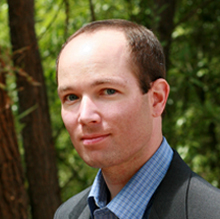 020), The Rhetoric of the Velvet Revolution (2002), among others. In addition, he has won awards such as the George Blazyca, the Czechoslovakian Studies Association, and the H. Noel Fieldhouse Award for Distinguished Teaching. He has received several international scholarships and distinctions, including: Social Sciences and Humanities Research Council of Canada (SSHRC) Insight Grant, 2018-23, Reinhard Bendix Memorial Research Fellowship (University of California, Berkeley), 2006-07, Berkeley Program in Soviet and Post-Soviet Studies Summer Language Training Grant (used at the University of Debrecen, Hungary).
020), The Rhetoric of the Velvet Revolution (2002), among others. In addition, he has won awards such as the George Blazyca, the Czechoslovakian Studies Association, and the H. Noel Fieldhouse Award for Distinguished Teaching. He has received several international scholarships and distinctions, including: Social Sciences and Humanities Research Council of Canada (SSHRC) Insight Grant, 2018-23, Reinhard Bendix Memorial Research Fellowship (University of California, Berkeley), 2006-07, Berkeley Program in Soviet and Post-Soviet Studies Summer Language Training Grant (used at the University of Debrecen, Hungary).
Oscar Saldarriaga Vélez Is tenured professor at the Pontificia Universidad Javeriana and Founding member of the Research Group History of Pedagogical Practice in Colombia. He is Doctor in philosophy and letters-(History) of the Catholic University of Leuven - Belgium. His main research themes are the history of the pedagogy, secularization in Colombia on social knowledge form t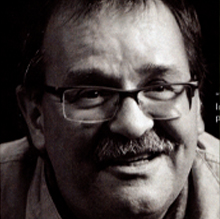 he XVIII century to the XX century, philosophy taught as a school discipline, on the work of Michel Foucault and Michel de Certeau and on the methods of semiotic analysis applied to the social sciences, among others. He has published books such as Mirar la infancia: pedagogía, moral y modernidad en Colombia 1903-1946 in Co-authorship with Javier Sáenz and Armando Ospina (1997), Del oficio de maestro, teorías y prácticas de la pedagogía moderna en Colombia (2003) and Nova et Vetera: Filosofía neotomista, Educación y Regímenes de verdad en Colombia, siglos XVIII a XX.
he XVIII century to the XX century, philosophy taught as a school discipline, on the work of Michel Foucault and Michel de Certeau and on the methods of semiotic analysis applied to the social sciences, among others. He has published books such as Mirar la infancia: pedagogía, moral y modernidad en Colombia 1903-1946 in Co-authorship with Javier Sáenz and Armando Ospina (1997), Del oficio de maestro, teorías y prácticas de la pedagogía moderna en Colombia (2003) and Nova et Vetera: Filosofía neotomista, Educación y Regímenes de verdad en Colombia, siglos XVIII a XX.
Title: The resistances of the subalterns as a challenge to rethink violence and the mimetic crisis
Abstract: Pre- and post-pandemic Covid-19 social movements in diverse contexts (#Metoo, #Blacklivesmatter, #Nomásdesaparecidos, #Todossomosmigrantes, etc.) have emerged as growing indignation in the face of diverse expressions of violence originated by extractivist capitalism, heteronormative patriarchy, white supremacist and ableist neocolonialism.
Such social, ethical, and political indignation often calls for symbolic violence to dismantle hegemonic narratives through performances in public space and interventions of bodies and territories, to create autonomies of diverse spaces of intersubjectivity.
How to think the mimetic crisis and the paths of active nonviolence in these contexts? In other words, how to continue deepening the mimetic theory from the social, epistemic, and spiritual resistances that emerge in the cracks of the globalized world? This paper will propose some decolonial elements to rethink the crisis and its possible overcoming from anti-systemic resistances in relation to the mimesis of nonviolent differentiatio
Bio: Carlos Mendoza-Álvarez OP is currently a tenured professor in the Department of Theology at Boston College and a member of the board of directors of Concilium International Journal of Theology. He sis Doctor in Theology and Habilitation in Fundamental Theology. Both academic degrees obtained at the University of Fribourg in Switzerland in 1996 and 2009, Member of the National System of Researchers of Mexico from 2002 to 2021 and Professor at the Pontifical University of Mexico from 1995 to 2000. He has been a lecturer and visiting professor at universities in Switzerland, Brazil, Germany, Colombia, Korea, the United States and South Africa. Throughout 25 years he has developed a Fundamental Theology in critical dialogue with late Modernity, where th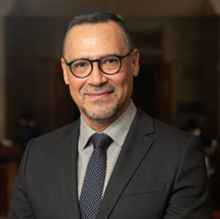 e Phenomenology of Subjectivity, Mimetic Theory and Decolonial Thought converge in dialogue with social movements in the Americas. He has published 8 books of personal authorship, 25 collective works and more than 50 articles in specialized journals. His latest book, published in 2019, La resurrección como insurrección messiánica. Duelo, memoria y esperanza desde los sobrevivientes (Mexico, Universidad Iberoamericana and Petrópolis, Vozes in portuguese) is the beginning of a trilogy on the idea of tradition as performativity of faith from the resistance of systemic victims, which complements the trilogy on the idea of revelation already published in Fribourg, Paris and Barcelona.
e Phenomenology of Subjectivity, Mimetic Theory and Decolonial Thought converge in dialogue with social movements in the Americas. He has published 8 books of personal authorship, 25 collective works and more than 50 articles in specialized journals. His latest book, published in 2019, La resurrección como insurrección messiánica. Duelo, memoria y esperanza desde los sobrevivientes (Mexico, Universidad Iberoamericana and Petrópolis, Vozes in portuguese) is the beginning of a trilogy on the idea of tradition as performativity of faith from the resistance of systemic victims, which complements the trilogy on the idea of revelation already published in Fribourg, Paris and Barcelona.
Title: Emerging Crisis: René Girard, Pope Francis, and the Need for Authentic Dialogue
Abstract: War in the Ukraine, the Covid-19-pandemic, global warming, outbursts of social unrest in various places all over the world, internally divided societies: We are going through a time of multiple crises. Already in June 2020 philosopher Slavoj Zizek pointed out that viral epidemics, the ecological crisis, and also the racial unrest in the US are intrinsically related: "Epidemics are not just a health problem but break out in the context of our unbalanced relationship with our natural environment." Others, like Pankaj Mishra, have also pointed out, that “the two ways in which humankind can self-destruct, civil war on a global scale or destruction of the natural environment are rapidly converging”. As Girardians, these diagnoses remind us of the introduction of Girard’s book on Clausewitz, where he states that the apocalyptic biblical texts referring to a “confusion between disasters caused by nature und and those caused by humans, […] global warming and rising waters are no longer metaphors today”.
However, Girard doesn’t see humankind entirely doomed. Quoting Hölderlin (But where danger threatens/That which saves from it also grows), he points to ways out of the crisis. Likewise, Pope Francis in his book Let us dream indicates the path to a better future.
Taking Girard and Pope Francis as our guides, we will search for ways through the current challenges that might help us to come out, maybe even come out better, from the crises we are facing.
Bio: Dr. Petra Steinmair-Pösel is Professor of Christian Social Ethics and is currently president of the KPH Edith Stein (Kirchliche Pädagogische Hochschule). Her main research interests include the relationship between mystical experience and socio-political engagement, social ethi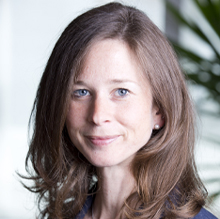 cal issues concerning gender issues, ecology and sustainability, as well as the mimetic theory of René Girard, with a special focus on questions of positive mimesis/peace and the application of Girard's work in the field of Catholic theology/spirituality and social ethics. She has also published books including Im gravitations feld von mystik un politik. Christliche Sozialethik im Gespräch mit Maria Skobtsova, Dorothe Söle und Chiara Lubich (2019), ausFRAUENsicht. Spirituelle und politische Impulse für jeden Tag (2013), Gnade in Beziehung. Konturen einer dramatischen Gnadenlehre (2009) among other works.
cal issues concerning gender issues, ecology and sustainability, as well as the mimetic theory of René Girard, with a special focus on questions of positive mimesis/peace and the application of Girard's work in the field of Catholic theology/spirituality and social ethics. She has also published books including Im gravitations feld von mystik un politik. Christliche Sozialethik im Gespräch mit Maria Skobtsova, Dorothe Söle und Chiara Lubich (2019), ausFRAUENsicht. Spirituelle und politische Impulse für jeden Tag (2013), Gnade in Beziehung. Konturen einer dramatischen Gnadenlehre (2009) among other works.
Edgar Antonio Lopéz is Professor of the Faculty of Theology at the Pontificia Universidad Javeriana, Master’s and Doctorate in theology from the Pontificia Universidad Javeriana, Master in Philosophy from Universidad Nacional de Colombia, Bachelor in Philosophy and History from Universidad Santo Tomás and Philosopher from Pontificia Universidad Urbaniana. As part of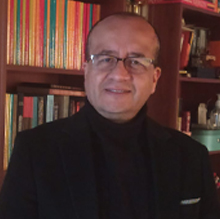 his research work in popular reading of the Bible, he has assisted groups of victims of the armed conflict in Colombia. He has also assisted other processes of popular Bible reading with the Base Ecclesial Communities (CEBs) and with groups of women victims of gender violence. Among his most recent publications is The Book chapter “Women’s sexual rights from a contextual reading of 2 Samuel 13:1-22. A theological reflection on gender violence (2022), the article “Contextual Bible Reading and intercultural Bible reading. Four Colombian experiences” (2021) and the book The Widow and the Judge: Memory, Resistance and Hope (2020) in co-authorship with Hans de Wit.
his research work in popular reading of the Bible, he has assisted groups of victims of the armed conflict in Colombia. He has also assisted other processes of popular Bible reading with the Base Ecclesial Communities (CEBs) and with groups of women victims of gender violence. Among his most recent publications is The Book chapter “Women’s sexual rights from a contextual reading of 2 Samuel 13:1-22. A theological reflection on gender violence (2022), the article “Contextual Bible Reading and intercultural Bible reading. Four Colombian experiences” (2021) and the book The Widow and the Judge: Memory, Resistance and Hope (2020) in co-authorship with Hans de Wit.
Title: Re-thinking sacramentality after René Girard: desire, sign and the intelligibility of crisis
Abstract: How might Girard's thought enable us to re-imagine sacramentality? With an enormous debt to Tony Bartlett's work on Girard and the Sign, I will explore some of the theological questions behind understanding Christ's Passion as enabling a fundamental recreation of constitutively human meaning. This will not be a treatise on the sacraments, but I hope to offer a contribution to how the distinction between the "sacred" and the "holy" might have some anthropological heft in our lives, understood as lived within the ongoing crisis of becoming human.
Bio: James Alison is a Catholic Priest, theologian, and author. He obtain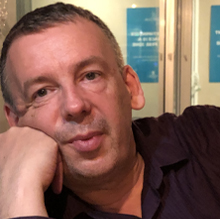 ed his doctorate from the Jesuit Faculty in Belo Horizonte, Brazil. James has lived in many countries, including several in the Americas, and works as a itinerant preacher, lecturer, and retreat facilitator. He is known for his theological interpretation of the work of René Girard (most recently as the author of an introduction to the Christian faith for adults following Girard's thought, and co-editor with Wolfgang Palaver of a manual on mimetic theory and religion) and is a member by Imitatio (www.imitatio.org). Over the years, James has firmly but delicately stood up to the Church's authority on homosexual matters and has lived to tell the tale. His writings can be accessed at www.jamesalison.com. When he is not traveling he lives in Madrid.
ed his doctorate from the Jesuit Faculty in Belo Horizonte, Brazil. James has lived in many countries, including several in the Americas, and works as a itinerant preacher, lecturer, and retreat facilitator. He is known for his theological interpretation of the work of René Girard (most recently as the author of an introduction to the Christian faith for adults following Girard's thought, and co-editor with Wolfgang Palaver of a manual on mimetic theory and religion) and is a member by Imitatio (www.imitatio.org). Over the years, James has firmly but delicately stood up to the Church's authority on homosexual matters and has lived to tell the tale. His writings can be accessed at www.jamesalison.com. When he is not traveling he lives in Madrid.
Title: On the Realm of Images and Ritual Effects: Exploring Anew an Old Mimetic Endeavour
Abstract: One of mimetic theory’s most fertile tenets is that the emergence of new inquiries cannot solely look into the future but must be also fostered by looking into the past. René Girard himself always welcomed the idea that he had a good number of predecessors. In this vein we would like to trace –– through a Girardian lens –– the trajectory of a thinker that led to the birth of visual studies as we know them today. Aby Warburg inaugurated in the early decades of the 20th century a new way of dealing with images whose depth and scope outflanks the discipline he founded and fostered––iconology. That is why Giorgio Agamben still calls this seminal enquiry an “unnamed science”. We would like to propose that Warburg’s abiding question ––how do symbols emerge and migrate throughout history–– and his quest for the principle that not only binds images together, but constantly pairs them in polarities ––nymph/maenad, hero/monster–– could be answered through the application to the realm of images of Girard’s religious anthropology ––a theory as interdisciplinary as Warburg’s attempt–– and its mimetic notion of the “sacred”, so that Warburg’s “unnamed science” –– urgently needed in this age tyrannically ruled by mimetic images –– remains no longer unnamed.
Bio: Tania Checchi studied a B.A and a Masters degree in philosophy at Universidad Iberoamericana in Mexico where she taught for 15 years Aesthetics, Ethics and Philosophy of Religion. She obtained her Ph.D. from Universidad Pontificia Comillas in Madrid and now teaches at Co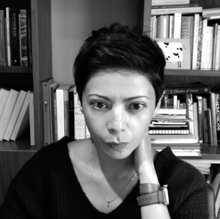 legio de Saberes graduate school’s program “Violence and Subjectivity”. Her work deals with the phenomenological tradition and its emphasis on ethics as first philosophy, with inter=religious dialogue from the perspective of mimetic theory and with the philosophical status of the image as symbolic and ritual effect. She's recently explored the temporal and ideological matrixes of myth and its figurative vehicles following the lead of E. Levinas, R. Girard and F.W.J. Schelling among others. She´s published a book on Levinas' phenomenology, "Sense and exteriority", a number of articles on her main areas of study and has translated works by E. Fackenheim, M. Dufrenne and Emmanuel Levinas.
legio de Saberes graduate school’s program “Violence and Subjectivity”. Her work deals with the phenomenological tradition and its emphasis on ethics as first philosophy, with inter=religious dialogue from the perspective of mimetic theory and with the philosophical status of the image as symbolic and ritual effect. She's recently explored the temporal and ideological matrixes of myth and its figurative vehicles following the lead of E. Levinas, R. Girard and F.W.J. Schelling among others. She´s published a book on Levinas' phenomenology, "Sense and exteriority", a number of articles on her main areas of study and has translated works by E. Fackenheim, M. Dufrenne and Emmanuel Levinas.
Title: Even now, now, very now: mimesis’ and imitation’s temporalities
Abstract: Mimetic Theory is probably more present today than when it was first conceived by René Girard in the early 1960s. The difference lies in the emergence of the digital universe and the world of social networks. Relevant work has already been advanced in this area of studies, such as the pioneer essay published by Nidesh Lawtoo, (New) Fascism: Contagion, Community Myth (Michigan State University Press, 2019). Indeed, most of the vocabulary spontaneously employed in the digital universe is of mimetic resonance: viral, symbolic lynching, call-out culture, memes, contagion. The contemporary presence of Mimetic Theory, however, is a potentiality, which can only be brought to full fruition if we theorize this presence. This is the aim of my presentation, primarily through a refection on the need to sharpen the subtle distinction between mimesis and imitation, especially concerning their unique temporalities.
Bio: João Cezar de Castro Rocha is Full Professor of Comparative Literature at State University of Rio de Janeiro and a Researcher at CNPq. Castro Rocha was President of the Brazilian Association of Comparative Literature (ABRALIC) in 2016-2017; and is a Humboldt Fellow. He has held several international fellowships and distinctions, among them: “Xiaoxiang Scholar / Visitng Researcher” – Hunan Normal University / Humboldt Centre for Interdisciplinary Research at Hunan Normal University (2020-2023); “Visiting Research Scholar & Visiting Professor” – Program in Latin American Studies, Princeton Universty (Princeton, February – August 2014); “Ministry of Culture Visiting Fellowship,” Centre for Brazilian Studies / University of Oxford (January – March 2004); “Full Fellowship,” given by the Ph.D. Program of the Department of Comparative Literature / Stanford University (1995-1998). He has also lectured at many universities throughout the Americas.
Castro Rocha is the author of 13 books and editor of 30 titles. His latest publications are: Guerra Cultural e Retórica do Ódio. Crônicas de um Brasil pós-político (Goiâna, Editora Caminhos, 2021); Culturas shakespearianas. Teoria mimética e os desafios da mímesis em circunstâncias não hegemônicas (São Paulo, É Realizações, 2017; English translation: Shakespearean Cultures. Latin America and the Challenge of Mimesis in Non-Hegemonic Circumstances, Michigan State University Press, 2019). He is co-author, with René Girard and Pierpaolo Antonello, of Les origines de la culture. Entretiens avec Pierpaolo Antonello et João Cezar de Castro Rocha. Paris: Édi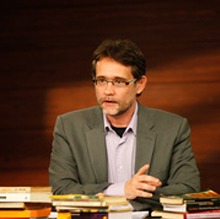 tions Desclée de Brouwer, 2004. The French edition received the “Prix Aujourd’hui” in 2004. Castro Rocha is member of the Advisory Board of several academic journals
tions Desclée de Brouwer, 2004. The French edition received the “Prix Aujourd’hui” in 2004. Castro Rocha is member of the Advisory Board of several academic journals
Castro Rocha has received two National Awards in Brazil: Machado de Assis: Por uma poética da emulação (2013) – Prêmio de Crítica e História Literária da Academia Brasileira de Letras; Literatura e cordialidade. O público e o privado na cultura brasileira (1998) – Prêmio Mário de Andrade da Biblioteca Nacional.
Pontificia Universidad Javeriana is a Jesuit university which is distinguished as one of the best in Colombia and Latin America. Lodging options are at nearby hotels.
Download Pontificia Universidad Javeriana's map here.
Bogotá is a city with many places of interest such as the gold museum and the colonial zone. Colombia, the place of the magic realism— as the Nobel prize winner, Gabriel Garcia Márquez would say—is a country with beautiful places like Cartagena, the coffee zone, magical little towns, and Leticia in the middle of the Amazonian jungle. It is one of the world’s best repositories of surviving fauna and flora which can be visited in a several ways. One of the outstanding activities available is bird watching, as Colombia is considered a world leader in this field.
Travel Grants:
COV&R offers travel grants under the following conditions:
1. Possible recipients are grad students or practitioners of mimetic theory (e.g., NGO/non-profit staff; journalists, government employees). Preference is given to graduate students but practitioners of mimetic theory are also encouraged to apply.
2. Possible recipients have an accepted proposal and offer a presentation at the conference.
3. Grants are awarded at the conference.
4. Attendees are eligible one time only for a travel grant. Priority will be given to applicants who have not received a grant previously.
5. Grants are given on a first come, first served basis.
6. The registration fee will be waived for travel grant recipients.
To apply for a travel grant, write to the Executive Secretary of the Colloquium at nikolaus.wandinger@uibk.ac.at and explain your need and eligibility for the grant. He will be in touch with the conference organizers, so that grants will be awarded according to the Colloquium's specifications.
Travel Tips:
1. Read the Department of State’s COVID-19 page before planning any international travel, and read the Embassy COVID-19 page for country-specific COVID-19 information.
2. Check the exchange rate.
3. Avoid protest areas and crowds.
4. Monitor local media for breaking events and adjust your plans based on new information.
5. Keep a low profile.
6. Be aware of your surroundings.
7. Enroll in the Smart Traveler Enrollment Program (STEP) to receive Alerts and make it easier to locate you in an emergency.
8. Follow the Department of State on Facebook and Twitter.
9. Review the Country Security Report for Colombia.
10. Read about the type of power adapter used in Colombia.
11. Read about the weather in Bogotá - Colombia.
12. More information about Bogotá - Colombia.
13. Migration Colombia asks you to check in beforehand. More information here.
Lodging options during the Congress:
We know you will be in Bogota for the congress, but we are thinking of a complete experience where you get as much as possible from the event, our reality, history, and our way of living and culture.
We recommend the following hotels, which have agreements with us.
This hotel is located 5 minutes from the heart of Bogotá, on Trans 4 # 43 – 95. Next to the campus of the Pontificia Universidad Javeriana de Bogotá and the San Ignacio University Hospital.
Phone number: (+57) 6017449999
This hotel is one of the most traditional places in Bogota. Located in the downtown area, it offers the positive characteristics of a big hotel, and you will be just 20 minutes away walking from the university. The best of staying here is that you will be close to several touristic places in Bogota, for example:
*Monserrate: it is a colonial Church at the top of a mountain (10.000 feet high) from which you can see all the city. You get on top of the hill by taking a funicular or a cable car. Also, you will be able to buy souvenirs and food there.
*La Candelaria: is a historic neighborhood characterized by traditional houses. A lot of important events in the history of Colombia took place there.
Phone number: (+57) 6013820300
It is a welcoming hotel at Chapinero's heart with comfortable rooms and a friendly staff. It is located near to "La zona G", in which there are a wide range of gastronomical offerings. In addition, its centrality provides easy accesibility to the Pontificia Universidad Javeriana, the downtown and shopping, financial and tourist centers.
Phone number: (+57) 601608 8080 - 601743 3777
The hotels on the bottom line do not have an agreement with us, but we recommend them
Phone number: (+57) 6013257901
Phone number: (+57) 6016399999 - 601639990
Phone number: (+57) 6013171313
Pontificia Universidad Javeriana
Colombia













